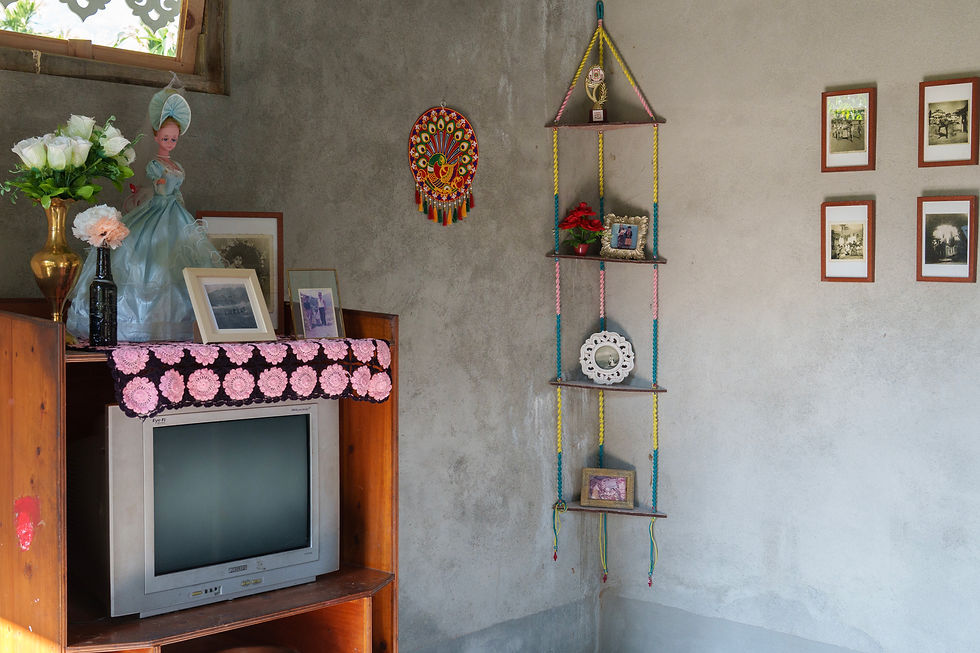Decolonizing Spaces: Reflections on the Writing Workshop
- Dipti Tamang
- Apr 29, 2025
- 4 min read

Our first writing workshop comes to an end tomorrow. I am both overwhelmed andgrateful for this experience. Over nine intense days of conversations, dialogues and reflections we curated stories that speak of our histories, our existence, our identities, beliefs, values and realities. As a researcher/writer and scholar working with the Confluence Collective since its inception, I value the importance of research in storytelling practices.
For a long time, I have been yearning to curate a space – a safe space- to tell our stories, which comes from my own sense of frustration, exhaustion with the lack of such spaces for those of us always denied a Voice. Been trained for years in the academic rigor of intellectualizing and theorizing with the end goal of publishing and producing; it took me sometime to pause, breathe, self-reflect and ask, ‘For Whom?’
The question became louder to my own ears after I relocated back to my hometown. Armed with degrees from the best universities in the world, I should have felt validated. However, the more time I spent back home, the more I felt my research lacked any purpose or value. So, I stopped writing.
I decided I would not write for academia anymore. Neither was I okay now using these stories as fieldwork and data to compliment my research and give value to my work in the hallowed spaces of academia. It is not surprising that people of oppressed and minority communities often are the first group of people to feel burdened by the heavy weight of these systems.
It is not at all surprising then that we witness huge number of deaths by suicide of members belonging to these communities in these hallowed spaces. For these systems have failed us collectively. They continue to remain oppressive, exclusive and violent. They continue to exhaust us. Research and Writing within these spaces therefore continue to be extractive and colonized- perpetuating systemic injustices stemmed in casteist, racist, homophobic and gendered practices.
Can we then re-imagine Research and Writing as Art in its most radical forms? Can we think of Writing as Resistance? Drawing from the powerful practices of reclaiming spaces by Dalit Feminist Groups, Palestinian Liberation Groups and such progressive spaces, this workshop was a first effort in this direction. I have waited for too long- nervous, anticipating, procrastinating and being unsure for too long. Now felt like the right time to curate this space at the Collective. We have come so far- struggling with resources, balancing our own personal lives and building this space. Building and sustaining a local collective is hard. All we have had is the burning desire to curate this safe space- where we have our own Voice to tell our own stories.
As a community that has been historically oppressed and denied Voice and Agency,curating spaces like this is an Act of Resistance. As we come to the end of this workshop, I want to reflect on what transpired and how we collectively shaped our own methodology built upon nothing but an Ethics of Care, Radical Love and Hope.
The ‘Outcome’
We cried sharing our stories,
We cried listening to stories of our ancestors,
We found solidarity in each of our stories,
We began to take back our Voice.
Bit by Bit, we let go of the baggage We were carrying with us.
What Voice Sound like to Us
‘I let go of the fear of being Judged.’
‘I let go of this belief that my writing is not good enough.’
‘I let go of the fear of being unheard.’
‘I no longer seek validation.’

In the nine days of togetherness, the participants became friends and collaborators, nurturing a space of care and kindness. It became possible to curate a space where constructive feedback took over critical feedback; Radical compassion took over unkind words. We watched each of us let go of our inhibitions, shed off our guards, self-reflect and build a community.
We learned to Listen and Hear and choose words with kindness cultivating a methodology that reflected ethics of Care. Each of us have a story of tell and each of us have slowly found our Voice.
In finding our own Voice, we learned how to sit with discomfort; slowly witnessing where we needed self-reflexivity, while also learning to show kindness to self and others. It became possible to accommodate difference and have dialogue around it over being uncomfortable with difference. We have in the past nine days built a space outside of the elite spaces of Academia that often trains us to believe such learning through collective sharing and learning is not possible. It became possible to not only reimagine this space but to bring it to fruition.
In the nine days of togetherness, we collectively curated a space where it was no longer about me or her or him on our isolated individual journey.
It was no longer about Me, but Us. And that I get is what Decolonizing, Resistance and Reclaiming Spaces looks like in its truest form.
The Confluence Collective is a non-profit organization that needs your support. We rely on each one of you - our patrons and friends to help our organization sustain our work of archiving and documenting histories. Your contribution to the TCC Photo Archive will not only help preserve the stories of the Darjeeling-Sikkim Himalayas but also ensure that the Collective remains a vital space for cultural dialogue, creative expression, and public engagement. Support us - https://www.theconfluencecollective.com/supportus






















Comments